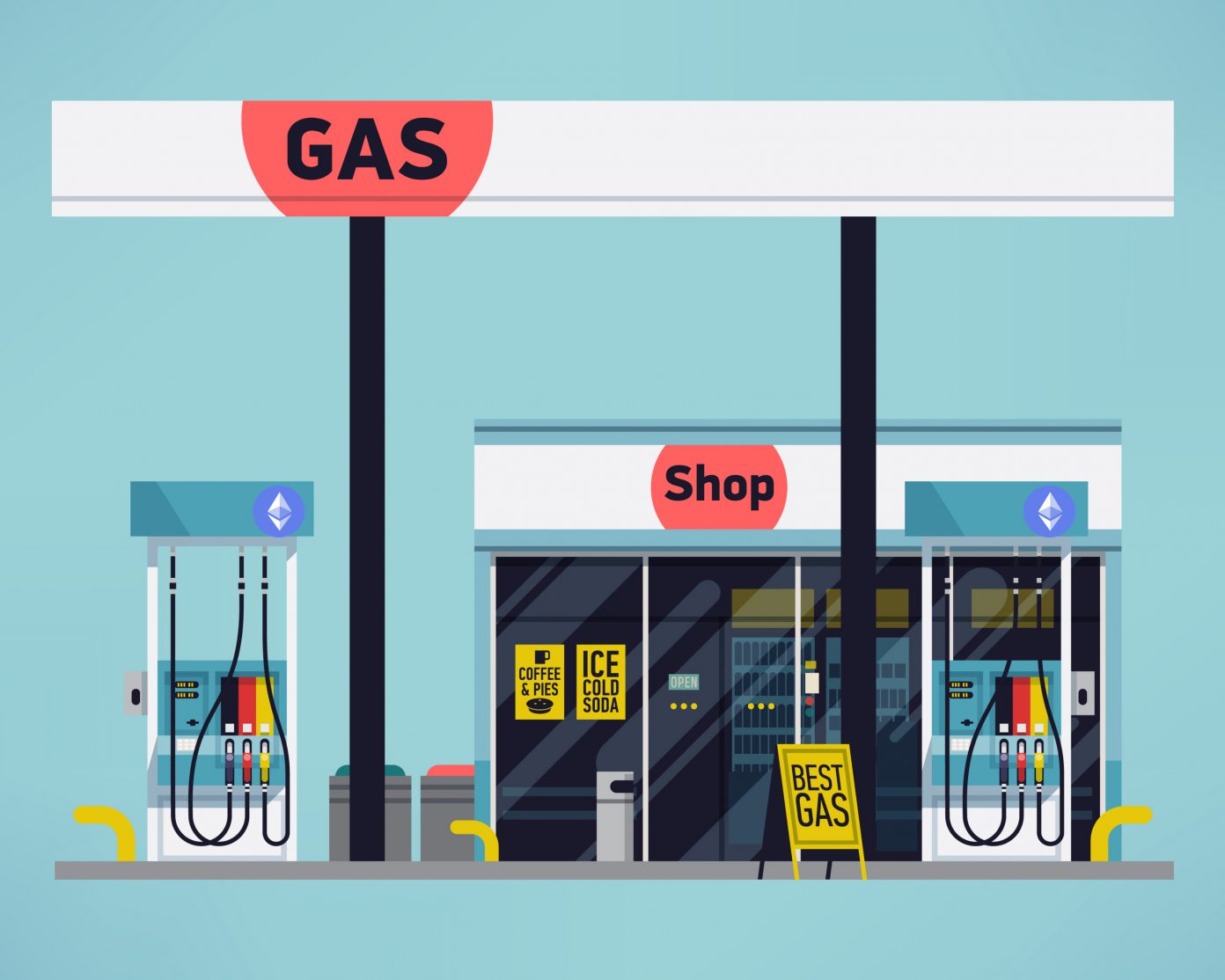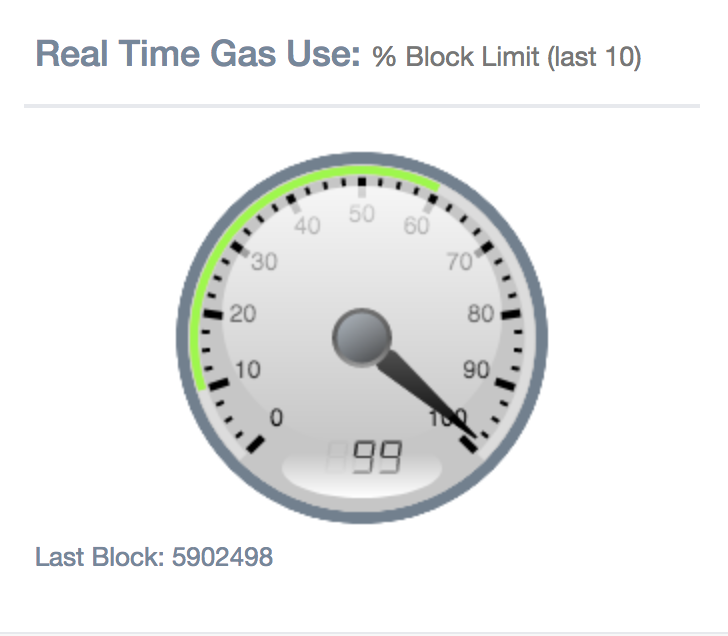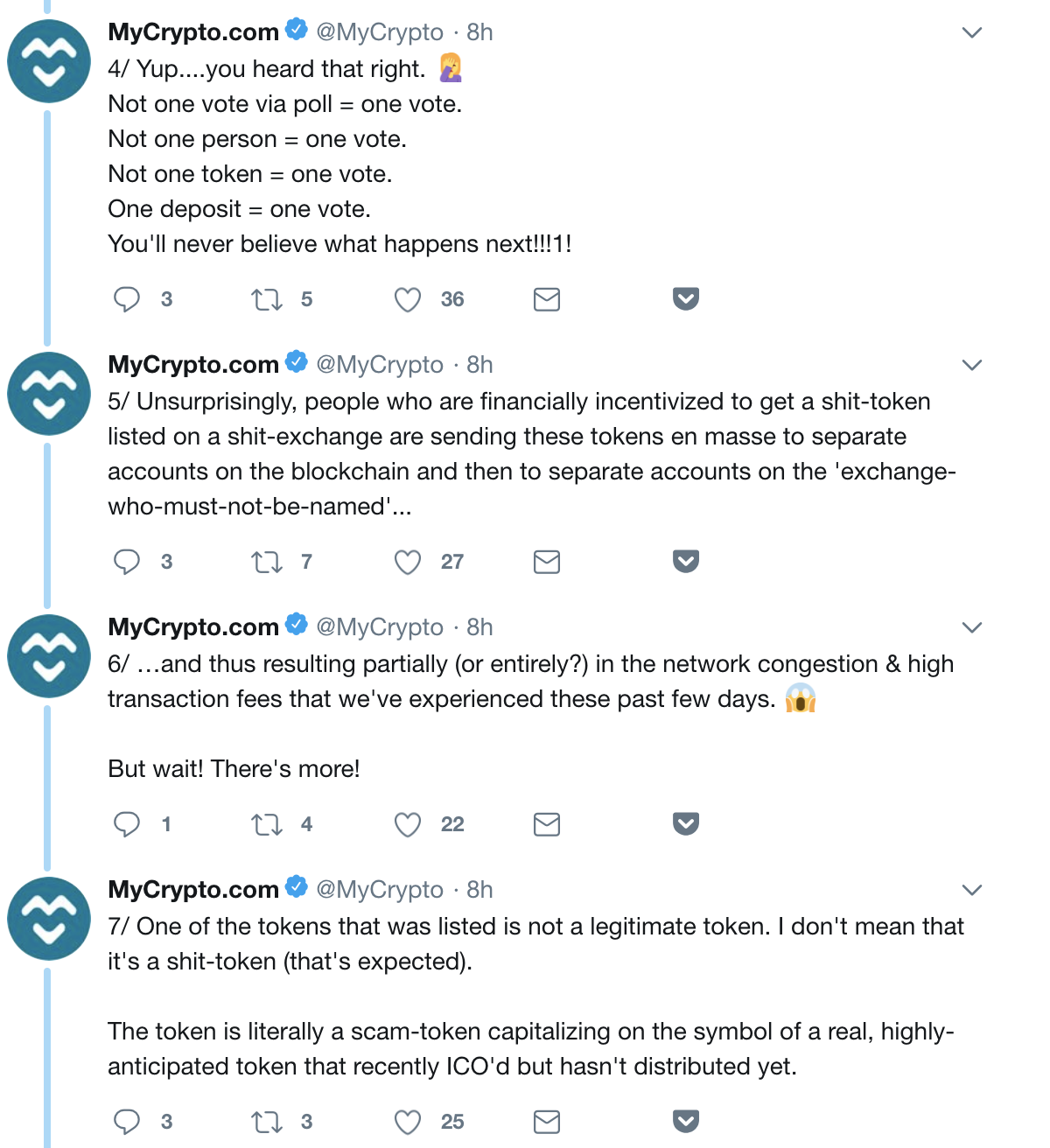
Another month, another almighty congestion on the Ethereum network. Gas prices have soared this week, passing 500 gwai at one stage, before settling on a still-pretty-substantial 56 gwai. As a result, the average transaction cost is $0.49, making it more expensive to send crypto on Ethereum than on other major blockchains such as BTC or BCH. A rogue app, as usual, seems to have been the culprit.
Also read: Paul Krugman Trolls Ripple, Accidentally Making a Case for Bitcoin Cash
Ethereum Backlog Causes a Network Slowdown
 Anyone trying to deposit or withdraw ERC20 tokens from a cryptocurrency exchange yesterday will likely have encountered a major delay. Gas prices have been unusually high for days, requiring an average of 50 gwai to push a transaction through. An application called Fcoin GPM Listing is being blamed. It forces all candidate projects to use massive gas fees to airdrop to FCoin accounts to create a ‘deposit vote number’. Each day the top five projects are listed on that exchange based on the cumulative deposit number, before the cycle repeats.
Anyone trying to deposit or withdraw ERC20 tokens from a cryptocurrency exchange yesterday will likely have encountered a major delay. Gas prices have been unusually high for days, requiring an average of 50 gwai to push a transaction through. An application called Fcoin GPM Listing is being blamed. It forces all candidate projects to use massive gas fees to airdrop to FCoin accounts to create a ‘deposit vote number’. Each day the top five projects are listed on that exchange based on the cumulative deposit number, before the cycle repeats.
The site, which appears to originate in China, is a new addition to the cryptocurrency scene, and an unwelcome one for anyone who’s been trying to use the Ethereum network. This isn’t the first time Ethereum has been crippled by a single application of course; previous culprits have included Crypto Kitties and a group of shrimp farming games. Eth Gas Station estimated prices of up to 500 gwei at one stage on Monday, and yesterday a record 44.4 billion gas was used on the network.
It’s a Gas, Gas, Gas World
Popular Ethereum client-side interface Mycrypto launched into a Twitter rant on Tuesday about the selfishness of Fcoin GPM Listing, accusing it of using a “mind-numbingly despicable voting mechanism that, quite literally, incentivizes Sybil attacks”.

One of the worst, but less documented, side-effects of blockchains being commandeered by selfish apps is that they deter people from transacting on-chain. When a trader fears they won’t be able to move tokens from their hardware wallet in time to capitalize on a market movement, they will be more inclined to leave their coins on a centralized exchange, thereby losing their financial sovereignty.
In addition to harebrained schemes such as that conceived by the dubious Fcoin GPM Listing, certain Ethereum smart contracts are badly designed so as to use more gas than is necessary. To incentivize more efficient gas usage, a Solidity Gas Golfing Competition was recently held “to produce the most gas-efficient code…for a series of straightforward challenges”. Optimizing gas usage is something that all Ethereum developers can aid. But they’re powerless, like the rest of the community, to halt spammy or scammy apps that make unnecessary use of the blockchain, impeding service for everyone.
Have you suffered from slow and expensive Ethereum transactions this week? Let us know in the comments section below.
Images courtesy of Shutterstock, Eth Gas Station, and Twitter.
Need to calculate your bitcoin holdings? Check our tools section.
The post Rogue App Wreaks Havoc –Transaction Costs Soar as the Ethereum Network Slows appeared first on Bitcoin News.
Powered by WPeMatico
